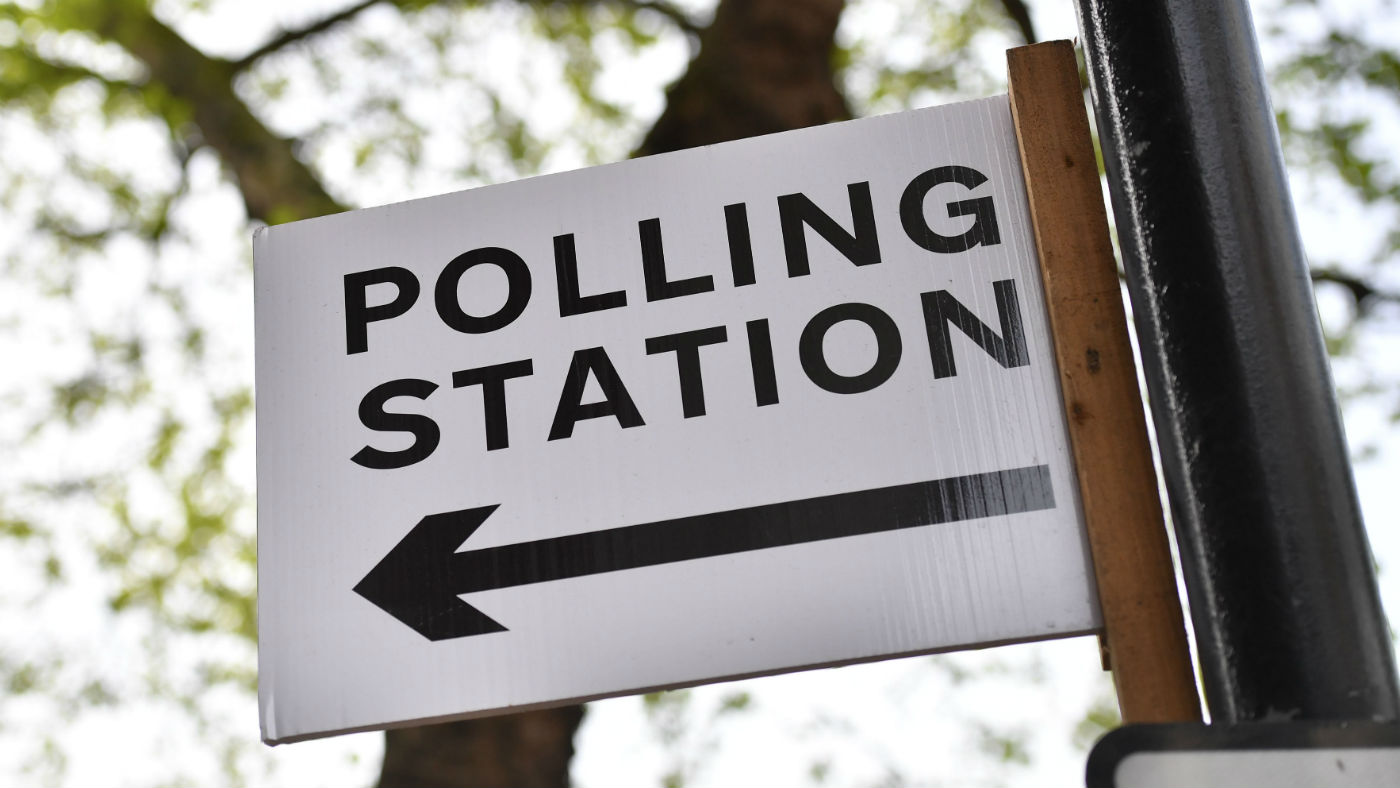Should first-past-the-post be scrapped?
System ‘abets extreme politics’ and negates need for main parties to appeal to middle ground, think tank argues

A free daily email with the biggest news stories of the day – and the best features from TheWeek.com
You are now subscribed
Your newsletter sign-up was successful
Far from delivering stable governments that occupy the centre-ground, Britain’s electoral system can no longer be relied upon to keep out extreme elements, a thinktank has claimed.
A report by the Constitution Society described first-past-the-post (FPTP) voting as broken and outdated, saying it encouraged geographical concentration of support for the two main parties, meaning there was less and less direct competition between Labour and the Conservatives and thus less incentive for candidates to pursue a middle ground.
The current electoral system also works against smaller parties, hindering the emergence of a moderate alternative from filling the void.
The Week
Escape your echo chamber. Get the facts behind the news, plus analysis from multiple perspectives.

Sign up for The Week's Free Newsletters
From our morning news briefing to a weekly Good News Newsletter, get the best of The Week delivered directly to your inbox.
From our morning news briefing to a weekly Good News Newsletter, get the best of The Week delivered directly to your inbox.
“In these circumstances FPTP can even abet extreme politics, since should a radical faction gain control of one of the major political parties, FPTP works to preserve that party’s position,” the report concludes.
The Guardian says the FPTP system, under which a single MP is returned from each geographical constituency, “has long been criticised for punishing smaller parties. However, supporters argue it provides stable government and encourages moderation” because fringe views are unlikely to gain representation.
For much of the 20th century this proved to be the case. Between 1945 and 2010 there was only one minority government, but in the last nine years alone the UK has experienced one minority government, one coalition, a wafer-thin majority under David Cameron and another under Theresa May.
Even the last time a government was returned with a substantial majority – Labour in 2005 – the party only gained 36% of the popular vote.
A free daily email with the biggest news stories of the day – and the best features from TheWeek.com
“The current first-past-the-post system has failed and the strongest arguments against using proportional representation (PR) – that it produces weak or unstable governments – is just no longer true” says Edinburgh News.
What is more, “the UK electoral system’s ability to put power in the hands of so few, of course raises questions about democratic deficits and just how fair our electoral system actually is”, says the paper.
As an example, it cites the 2017 general election, in which the Democratic Unionist Party (DUP) got just 292,000 votes but still managed to get 10 MPs due to the geographic concentration of its support, ultimately handing the party the balance of power in a divided Parliament.
By contrast, Scottish Labour polled two and half times that number across Scotland and only returned seven MPs, while the Greens polled half a million votes across the UK and got just one MP. UKIP met a similar fate in 2015, securing over four million votes nationwide but returning a single MP.
In recent years, voter turnout has slumped and public faith in the UK democratic system has fallen to its lowest level in decades, with some commentators attributing the shift to this disconnect between votes and representation.
The sudden rise of climate change protest movement Extinction Rebellion (XR) is an example of an extra-parliamentary group which offers a voice to those whose views are unlikely to gain representation in Westminster under the FPTP systen.
“XR may be a global movement, but a glance at their map of local groups reveals just how heavily weighted their activity is towards the UK – the only European country that still uses the antiquated first past the post voting system” writes KIlna Jordan in The Independent.
Perhaps not coincidentally second and third place globally for number of XR groups are the US and Canada – the only other two major developed countries to use first past the post.
“This makes perfect sense,” Jordan writes. “Our first past the post voting system has systematically denied representation to the people who care the most about the protecting the natural world.”
“It is now clear that many ,voters have been rendered electorally homeless by the political decline which characterises both Labour and the Tories” writes Labour MP Angela Smith in Politics Home.
“These alienated voters are desperate for an alternative but know too that First Past the Post works against giving them the power to exercise a meaningful choice. It is a discredited system which limits the options available in an election and which effectively gives the two major parties the power to manage the choices available to the electorate”.